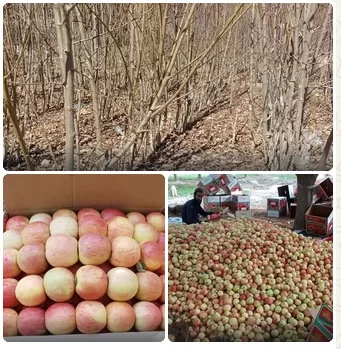
Southern Waziristan, once a Federally Administered Tribal Area (FATA) and now a merged district of Khyber Pakhtunkhwa, is renowned for its lush mountains and fertile lands. With a population of around 800,000, nearly 90% of its residents rely on agriculture, particularly horticulture, for their livelihood.
Every year, its orchards yield thousands of tons of fresh fruits such as plums, apricots, peaches, and apples, which are distributed across Pakistan and exported abroad. The fruit season brings employment opportunities for laborers, transporters, packaging box makers, and various other sectors. However, in recent years, extreme weather, persistent drought, and severe water shortages have posed serious threats to this agricultural economy.
Naveed Khan, an orchard owner, says the water crisis has drastically reduced their productivity. “Our orchard used to generate Rs. 1.8 to 2 million annually, but now we barely make Rs. 200,000 to 300,000,” he laments. “Our entire year’s income depends on this season, and if the situation doesn’t improve, we will lose everything.”
Social activist Imran Mukhlis highlights a lack of small dams in the region. “The water table is falling rapidly, deforestation continues unchecked, and reforestation efforts are almost nonexistent. Though the government announces new dams every year, those promises rarely go beyond paper. If serious action isn’t taken, people will be forced to migrate from this region,” he warns.
According to environmentalist Afia Salam, a major issue is the cultivation of crops unsuited to the local climate, which require excessive water. “Small dams can help recharge underground water levels, but it’s equally important to promote drought-resistant crops that can thrive with less water,” she explains.
A recent World Bank report supports these concerns, projecting that by 2050, over 216 million people globally could be displaced within their own countries due to climate change, many from areas suffering water scarcity and declining agricultural output.
Habib Khan Wazir, Agriculture Officer for South Waziristan, acknowledges the worsening situation. “Our water table has been declining steadily for the past three to four years, mainly due to rampant deforestation. To counter this, we’ve planted thousands of olive saplings, which require less water and can help mitigate the effects of climate change,” he says.
Southern Waziristan’s agricultural future hangs in the balance, threatened by climate change, dwindling water resources, and government inaction. Without immediate, coordinated efforts from the government, local authorities, and the public, not only will the region’s economy suffer, but thousands of families may lose their livelihoods. If neglected, the region’s famed sweet and juicy fruits may soon become just a memory of the past.